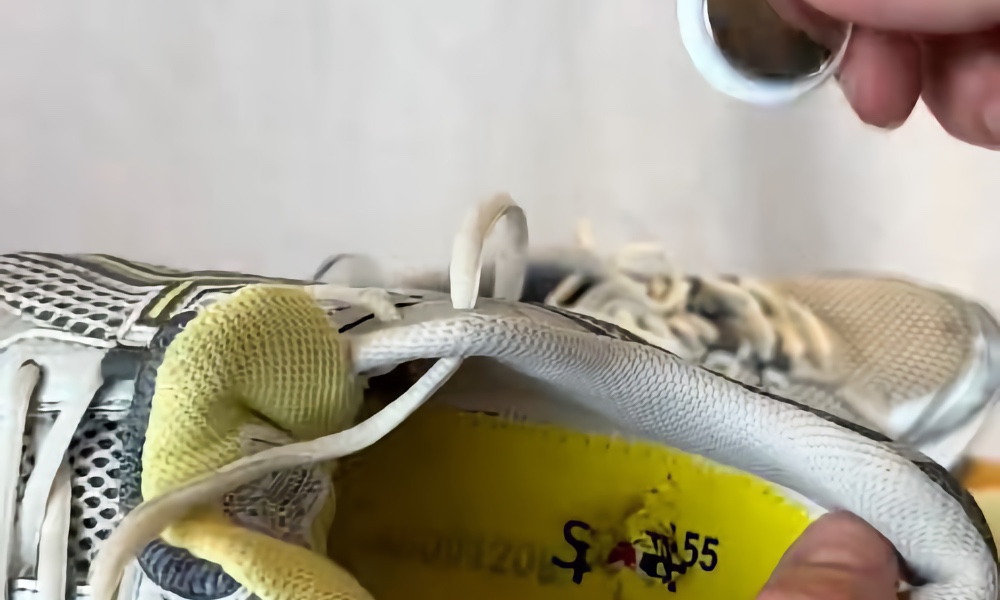TikToker Donates AirTag-Tracked Sneakers to Red Cross and This Happens

Toggle Dark Mode
What actually happens when you make a clothing donation to a charity such as the Red Cross? A TikToker decided to find out and hid an AirTag tracker inside a pair of sneakers before placing them in a Red Cross donation bin. He then tracked the sneakers’ travels with the Find My app.
In a now-viral video seen below (first shared by MacMagazine), TikTok user Moe.Ha showed how he hid an AirTag in a pair of sneakers before dropping them off at a Red Cross donation bin in Munich, Germany. He then tracked the athletic shoes over the span of five days and a few border crossings, finding the sneakers ending up in a second-hand shop nearly 800 km away from Munich, in Bosnia and Herzegovina.
His Find My app showed that the AirTag-equipped shoe donation made stops in Austria, Slovenia, and Croatia before landing in a Bosnian resale store, where they were put on sale for about 10 euros. As one does, Moe.Ha took a trip to the second-hand shop, where he found them on the shelf, and re-purchased them.
He asked the shop employee where the sneakers had come from. The worker replied that they were brought to the store by her boss, who resides in Germany.
While at first blush, this whole thing might seem like a scam, it apparently wasn’t. Sure, it’s human nature to feel scammed when something like this happens to a donation. However, the Red Cross says this is not unusual, due to how the charitable organization handles donated items.
The German Red Cross website explains how its sorting process works:
“We have around 18,000 used clothing containers across Germany. (…) After that, there are two different recycling models. In the “clothing depot model,” the clothing is sorted by the German Red Cross (DRK), and suitable items are distributed to our depots and thrift shops. The surplus is sold to a recycling company. In the “recycler model,” the entire contents of the container are sold to a company. The proceeds the Red Cross receives from this support our statutory missions.”
So, while donating a pair of sneakers and finding out they ended up in a thrift store four countries and 500 miles away might seem fishy, it’s just how the system works, at least for the Red Cross. However, it’s still a little weird when your donated sneakers do more traveling than you do.
This isn’t the first time an AirTag has been used to expose potentially questionable practices by an organization.
In September 2024, Houston resident Brandy Deason was suspicious about her city government’s “all plastic accepted” recycling program, which boasted about being able to accept even types of plastic that aren’t normally considered recyclable. So, she used some hidden Apple AirTags to track where the city residents’ plastic waste actually ended up.
Deason purchased a set of AirTags and hid them in her plastic recycling bags, tracking them on the Find My app. Nearly all of the AirTagged bags wound up at a company in nearby Harris County called Wright Waste Management. Why was this a problem? Wright Waste Management is not approved to store plastic waste and has failed three fire inspections.
CBS News correspondent Ben Tracy did some further digging and found aerial footage showing that the facility in question had mountains of plastic waste stored on its property that towered as high as ten feet!
You can read more about that story in our article on how AirTags helped a Houston woman expose her city’s plastic recycling failures.







